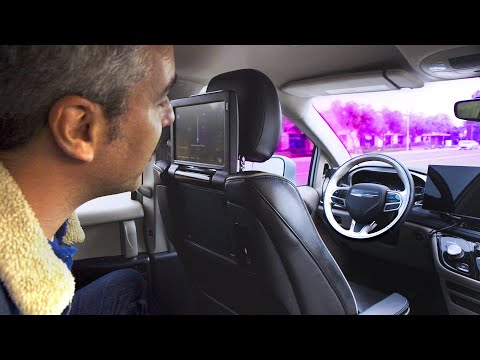The IAA Mobility event, which is taking place in Munich this week, focuses on sustainable mobility and solutions and related issues. Even autonomous driving, which is expected to exceed the safety of traditional drivers as early as 2024. By 2050, people will be banned from driving.
Undoubtedly, in the future, mobility as we know it will change completely. Thus, as early as 2024, autonomous vehicles could surpass drivers after safe driving, which would be taken as a development reference for fully autonomous driving of all cars by 2040.
Although the crisis caused by the pandemic in the past two years has slowed the development of autonomous vehicles somewhat compared to the initial announcements and tests, autonomous technologies are here and have become more common in new vehicles over the years. Thus, due to certain assistance systems, a decline in classic collisions in city centers can be detected, as the system successfully interferes with human driving and prevents accidents.
For example, adaptive cruise control was until recently considered an expensive optional equipment, but today new car buyers are demanding it, especially when choosing an automatic transmission, which allows for an even better experience of almost semi-autonomous driving. And this in all price classes, not just more expensive cars.
Features such as lane keeping, which were considered revolutionary just a few years ago when they first appeared on the Tesla Model S in late 2014, are now completely commonplace even in more affordable cars.
With all of this rapid development in autonomous driving technology, many believe it's only a matter of time before all cars on the road drive and communicate by themselves. Anyway, at least that's what research firm IDTechEx thinks.
IDTechEx provides an overview of the future of automated mobility in a new report titled "Autonomous Cars, Robots and Sensors 2022-2042".
IDTechEx estimates that autonomous vehicles could reach or exceed the level of human driving safety as early as 2024 with the current development. So, it can receive and process more information than a human. Which seems completely logical, since humans only drive with the help of a sensor called vision. Cars have integrated not only cameras, but various radars and depth sensors. And this in a spectrum of 360 degrees.
If this kind of growth in technological progress continues, the report concludes that by 2046, autonomous vehicles could meet all of the total demand for mobility, “covering” 3,500 billion kilometers per year in the US alone.
Let us remind you that Mate Rimac announced his robot taxi some time ago, which will be around Zagreb by 2024, and work is already underway on this project. In theory, IDTechEx points out that by 2050, autonomous vehicles could theoretically satisfy all the world's traffic needs with less than one traffic accident per year.


At the same time, they predict that in many countries it will be prohibited for people to drive on public roads in order to avoid injuries, accidents and disturbances in the driving of autonomous vehicles that, in addition to perception, also communicate with each other. That sounds absolutely crazy!
However, the main problem they imagine is not the continuous development and improvement of autonomous technologies, but the regulation of laws.
Regulators in various countries are potential roadblocks to progress, and IDTechEx pointed to Tesla's loss of NHTSA's top safety rating for the Model 3 and Y as a key example.
It seems that in the coming years we will certainly experience huge changes in terms of mobility and the automotive industry, which is already entering a new electric and autonomous era, while at the same time very easily and quickly abandoning the technologies of the past.
Advances in autonomous driving are relentless, so drive while you can. This now seems to be an extraordinary privilege that we are about to lose soon!









